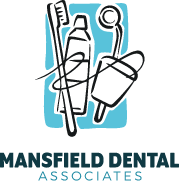If tooth decay progresses far enough, a tooth’s structural integrity can be at significant risk. The tooth can suffer chips or cracks and can even break. If untreated, the tooth can eventually fall out, prompting the need for a prosthetic or even a dental implant. But what kind of treatment is available for a compromised tooth? A dental crown can provide a tooth with support and improve the aesthetic appeal of your smile. Your Mansfield dentists, Dr. Blair Jones and Dr. Seth Harris, discuss the restorative power of dental crowns.
The Three Types of Dental Crowns
When a tooth has suffered damage to the extent that it requires the aid of a dental crown, the question arises of which kind of dental crown will be used to repair it. There are three types of dental crowns: all-metal crowns, porcelain-fused-to-metal (PFM) crowns, and all-porcelain crowns.
Each type of crown has its benefits and works best in a certain part of the mouth. All-metal crowns and PFM crowns are stronger than all-porcelain crowns, making them a good fit for teeth in the back of the mouth, where the larger forces of chewing and biting exist. PFM crowns offer a better cosmetic result than all metal crowns owing to their tooth-colored porcelain coating.
However, all-porcelain crowns have the most realistic appearance and are, therefore, the best option for teeth in the front of the mouth. Although, PFM crowns look very realistic, a dark line sometimes shows at the base of the tooth, where the metal coping of the underlayer becomes exposed. Even if this layer is covered, however, a dark line can still show when the tooth is under light because the porcelain is translucent (as are teeth), but the metal is not.
Schedule a Visit with Your Mansfield Dentists
If you have a tooth that could use a dental crown, schedule an appointment with your Mansfield dentists, Dr. Jones and Dr. Harris, by calling 817-473-6227. We proudly serve Mansfield and the surrounding communities of South Arlington, Kennedale, Southeast Ft. Worth, Alvarado, and Midlothian.





Recent Comments